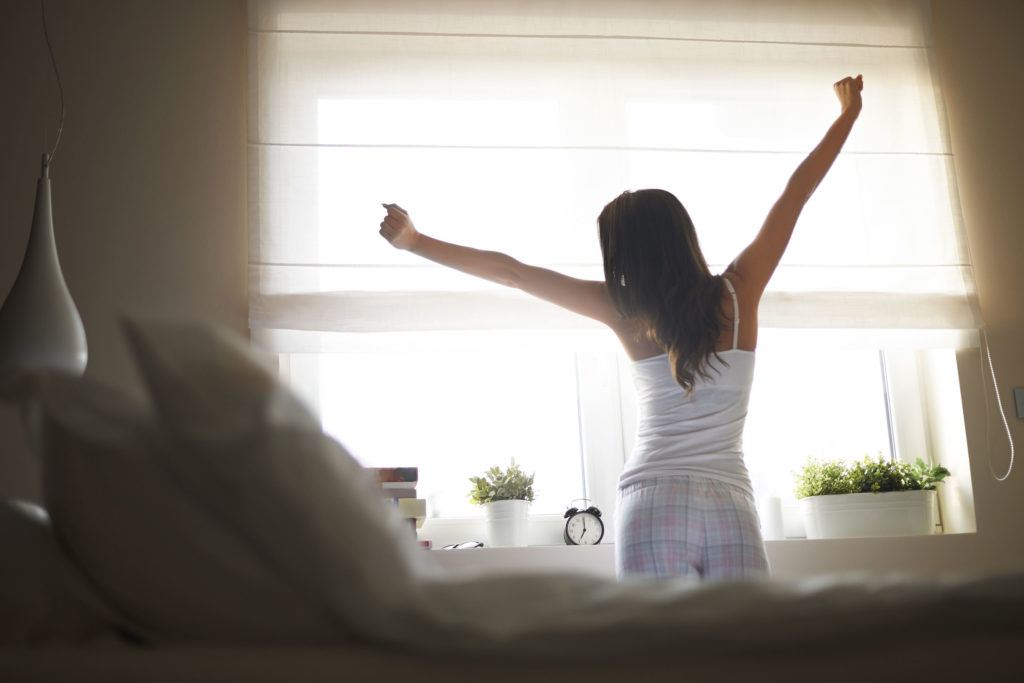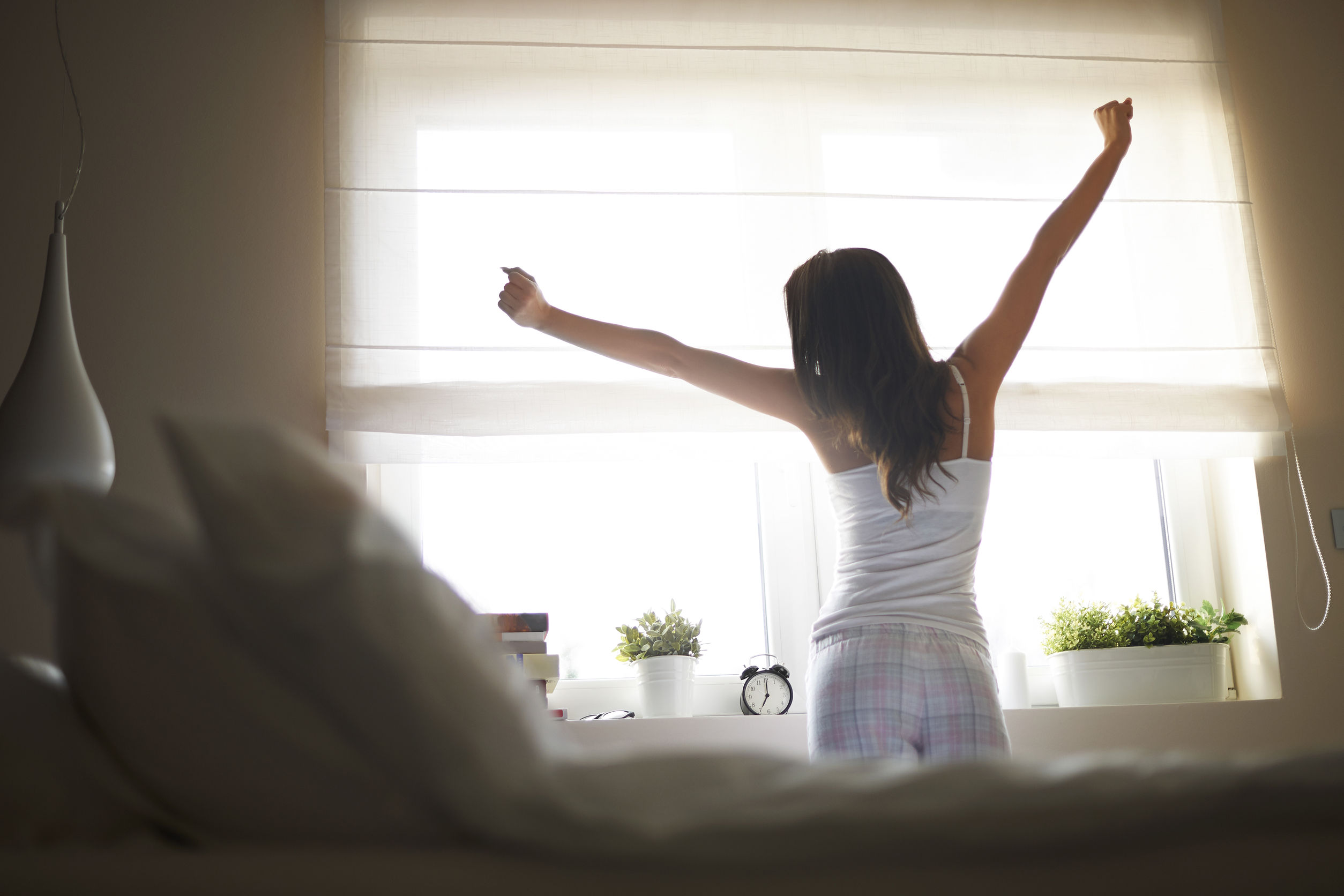
There are three lifestyle pieces that are critical to your health. I rank them right up there with your diet. Do you know what those three pieces are?
Obviously sleep is one of them, right? Thus the title of this article. The other two? Stress and Exercise. In my opinion they are the trifecta that either support your dietary efforts or work against them.
This fact is true. No matter how nutritious, balanced, and organic your diet may be, without regular movement, adequate sleep, and healthy stress management strategies you will never achieve optimal health.
As we move into Fall, it feels like the right time to talk about sleep. As the days grow shorter and the nights longer our bodies crave sleep. I might even argue that we actually need more sleep during the winter months.
We also have the holidays coming up, and although this is a wonderful time of year hopefully spent with loved ones and appreciating all that we have to be thankful for it can also mean increased stress, long to-do lists, and late nights. Unfortunately this often results in less sleep at a time of year when we need it more, which just so happens to coincide with the time of year where more of us succumb to illness. A coincidence? No! I don’t think so.
In fact, according to a study in the Journal of Clinical Sleep Medicine, a lapse in adequate sleep time — at least seven hours a night — can lead to decreased attention span, depressed feelings, and difficulty processing ideas. It can also lead to increased weight gain, increase your chances of getting sick, and increase inflammation in your body. All points that definitely need to be taken seriously.
If you are already a great sleeper, then awesome!! Keep it up! But if you’re not or if someone in your family is not, then keep reading. I’m going to share some reasons why you may not be getting the sleep you desire plus actionable strategies you can take right now to help you start getting longer and more restful sleep.
Factors That Affect Sleep
First, the factors that influence your sleep. They are many!! Here is a list of some of the most common reasons you may not be getting the sleep you crave.
- Eating Too Late
- Drinking Alcohol
- Caffeine
- Smoking
- Pets — although pets can help us relax, they can also interfere with a restful sleep if they share the same bed or bedroom as you. The same is also true if you share a bed or bedroom with your kids.
- Snoring
- Uncomfortable Mattress or Pillows
- Napping
Steps For Getting a Better Night’s Rest
First off, how many hours of sleep should you be aiming for each night? The recommendation varies a bit depending on your age and your genetics but most experts agree that adults function best on 7 to 9 hours of restful sleep.
Note the term restful, that is intentional. The quality of your sleep is even more important than the duration of your sleep. So if you’re not currently hitting that mark most nights, then here are four steps you can take right now to help improve both the quality and the duration of your nightly rest.
Step 1. Stick To A Sleep Schedule
Your body functions best when it is on a predictable rhythm, so do your best to to stick to the same bed time and the same wake time every day; ideally even on the weekends. Work backwards for this exercise. Based on what time you must get up in the morning, go back 7-9 hours and make this your consistent bedtime.
This rhythm, also known as our circadian rhythm, extends beyond sleep to include meals, exercise, work, and more. Even getting outside within an hour of waking up in the morning to allow the sunshine to enter your eyes can improve your circadian rhythm. Although we don’t always have control over our daily schedule, the more effort you put into keeping it consistent, the more your body will thank you for it.
Step 2. Optimize Your Sleeping Environment
Next, take some time to evaluate your current sleeping environment. Assess all the factors that could be affecting your sleep:
Temperature — Noise — Light — Pets — Kids — Mattress — Pillows
Ideally the temperature should be cool (between 60-67F), there should be no noise, and it should be dark. You may need to add items to help, like blackout curtains, a fan, eye shades, ear plugs, a “white noise” machine, etc.
Your mattress and pillows should be comfortable and supportive. If you often wake with aches and pains it could be because of an old or uncomfortable mattress or pillows. Mattresses are generally only good for 9-10 years and pillows for 1-2 years. As for pets and kids, I discussed these above. Make a plan to change and address what you can.
Step 3. Add In A Relaxing Bedtime Ritual
This step is critical in helping both your body and mind transition into a deep and restful sleep. When you jump straight off the computer, TV, or phone and into bed, your brain is not primed for sleep.
Instead schedule at least 30 minutes and maybe even up to an hour before you actually go to bed, in order to PREPARE for sleep. Here’s how I suggest you approach this in order of importance.
- Dim the lights – this triggers your brain to wind down and prepare for sleep
- Turn off all electronics (computer, phone, TV)
- Add a relaxing activity — this could be anything that resonates with you, I like to take a hot shower and sometimes even add in some aromatherapy. You might enjoy a relaxing bath, or moving through a progressive muscle relaxation or meditation. Maybe prayer, or journaling, or stretching. Whatever it is just make sure it helps you unwind, let go of your day, and prepare you for sleep.
Step 4. Food & Exercise
Of course your diet and your exercise will also impact your sleep. It’s all connected, right? We are holistic beings and everything we do has an impact or influence on something else.
In addition to an overall healthy diet, avoiding caffeine in the afternoon and not eating too late at night are two strategies that could help. As can limiting alcohol in the evening. Although alcohol may be helping you relax and might even make it easier to fall asleep unfortunately once the alcohol wears off during the night you’re more likely to wake up, thus contributing to interrupted sleep.
Exercise has been demonstrated to improve both the length and quality of sleep. The goal is to do some exercise every day but not too close to bedtime as it may be stimulating and make it harder to wind down and prepare for sleep.
Take Home Message
There are steps you can take to improve your sleep, both the duration and the quality. Poor sleep is probably one of the most common issues I see my clients struggle with. And no wonder when you consider our fast-paced lifestyle and what this entails.
The first step is to take a serious look at all the factors that may be getting in the way of you getting better sleep. You may not be able to change all of them right away but I bet there’s at least a couple you could address.
After that, set up a consistent sleep schedule and add in at least 30 minutes before you head to bed to help your body and mind prepare for sleep. You will be surprised at the impact that simple addition can have.
If the above strategies are not enough to give you the sleep you’ve been craving, there are natural remedies that can also be tried; essential oils, herbal teas, melatonin, magnesium, valerian, and more. Most are safe to experiment with on your own and see how your body responds.
Keep in mind that there may be health challenges beyond your control that are interfering with sleep. If that’s the case, then consulting with a sleep professional is your next best step. I would love to hear what you thought of these strategies. Share in the comments below. And if you have some success after experimenting with the above ideas, please let me know.
